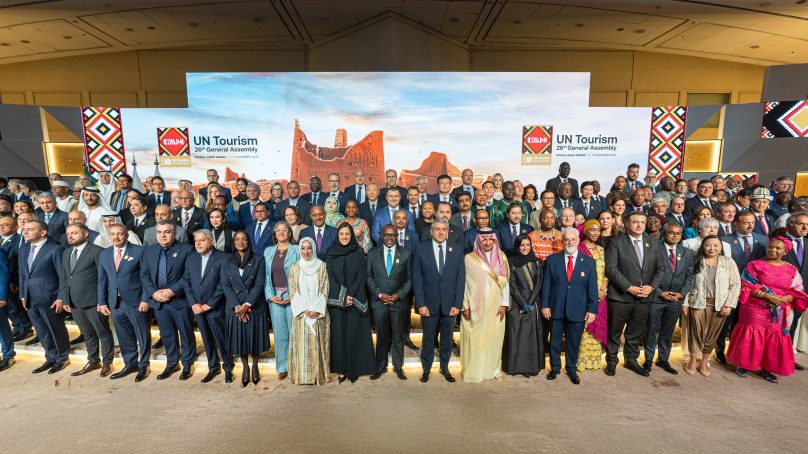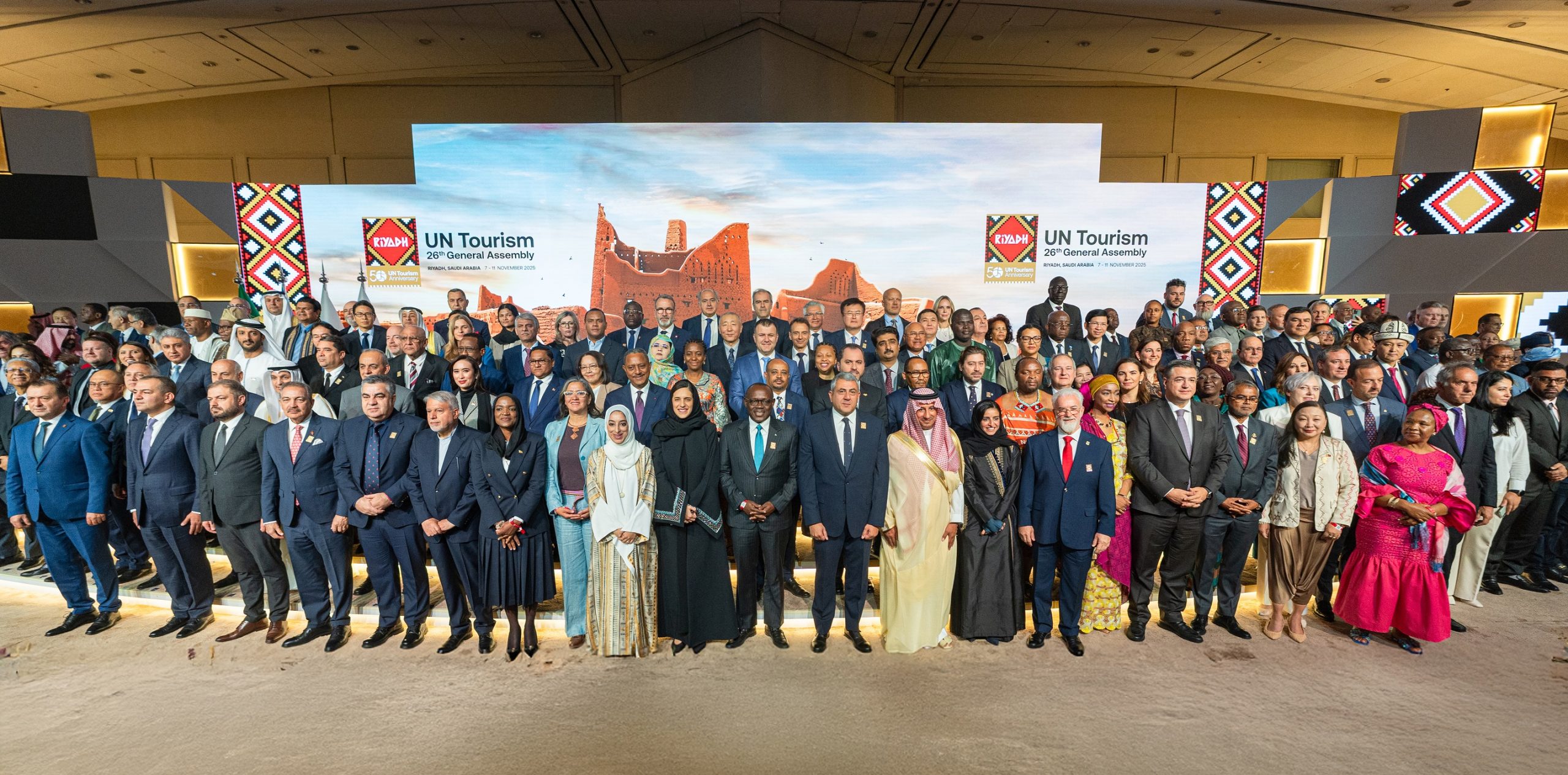Saudi Arabia made global headlines today as the 26th UN Tourism General Assembly concluded with the adoption of the Riyadh Declaration on the Future of Tourism, a visionary plan charting the next 50 years of the global tourism sector.
The landmark declaration positions Saudi Arabia as a leader in international tourism. Moreover, it emphasizes sustainability, AI-driven innovation and inclusive economic growth. Furthermore, it provides a clear roadmap to strengthen cooperation among countries while ensuring tourism drives economic development, cultural exchange and environmental protection.
“This is more than a declaration; it is a commitment to action,” said Ahmed Al Khateeb, minister of tourism. “From Riyadh, we will mobilize investments, digitize SMEs, upskill our workforce and protect our culture and environment. Tourism will remain a bridge between nations and a driver of shared prosperity.”
Tourism priorities
The Riyadh Declaration highlights four key priorities: sustainability, inclusion, digital transformation and resilience. Furthermore, by empowering local communities and leveraging AI and technology, the global tourism sector is expected to unlock new economic and social value while protecting cultural heritage and natural resources.
Historic appointment
The General Assembly also marked a historic milestone with the appointment of Shaikha Nasser Al Nowais as the next secretary-general of UN Tourism. Moreover, she will be the first woman and GCC national to lead the organization, starting her term in early 2026.
Riyadh declaration to drive future tourism
In addition, Saudi Arabia launched TOURISE, a global initiative designed to strengthen collaboration between public and private stakeholders. The platform aims to drive innovation, sustainable investment, workforce development and digital transformation across the tourism sector. Thus, it will ensure that it is well-equipped to meet future challenges. For travelers, investors and local communities, the Riyadh Declaration signals a future where tourism is more responsible, tech-driven and inclusive. Moreover, it reinforces Saudi Arabia’s commitment to being a global hub for innovation and sustainable development in tourism. It also encourages other nations to join in shaping a resilient, forward-looking global industry. Experts say the Riyadh Declaration could transform tourism economies worldwide, encourage digital adoption, AI integration and greener practices. Furthermore, it promises a stronger focus on local engagement. Thus, it will ensure that communities benefit directly from tourism growth.
The Riyadh Declaration sets a bold course for the sector, inspiring decades of collaboration, innovation and sustainable progress. Consequently, Saudi Arabia emerges as a key driver of global tourism strategy, showing how vision, leadership and innovation can shape the future of travel.












